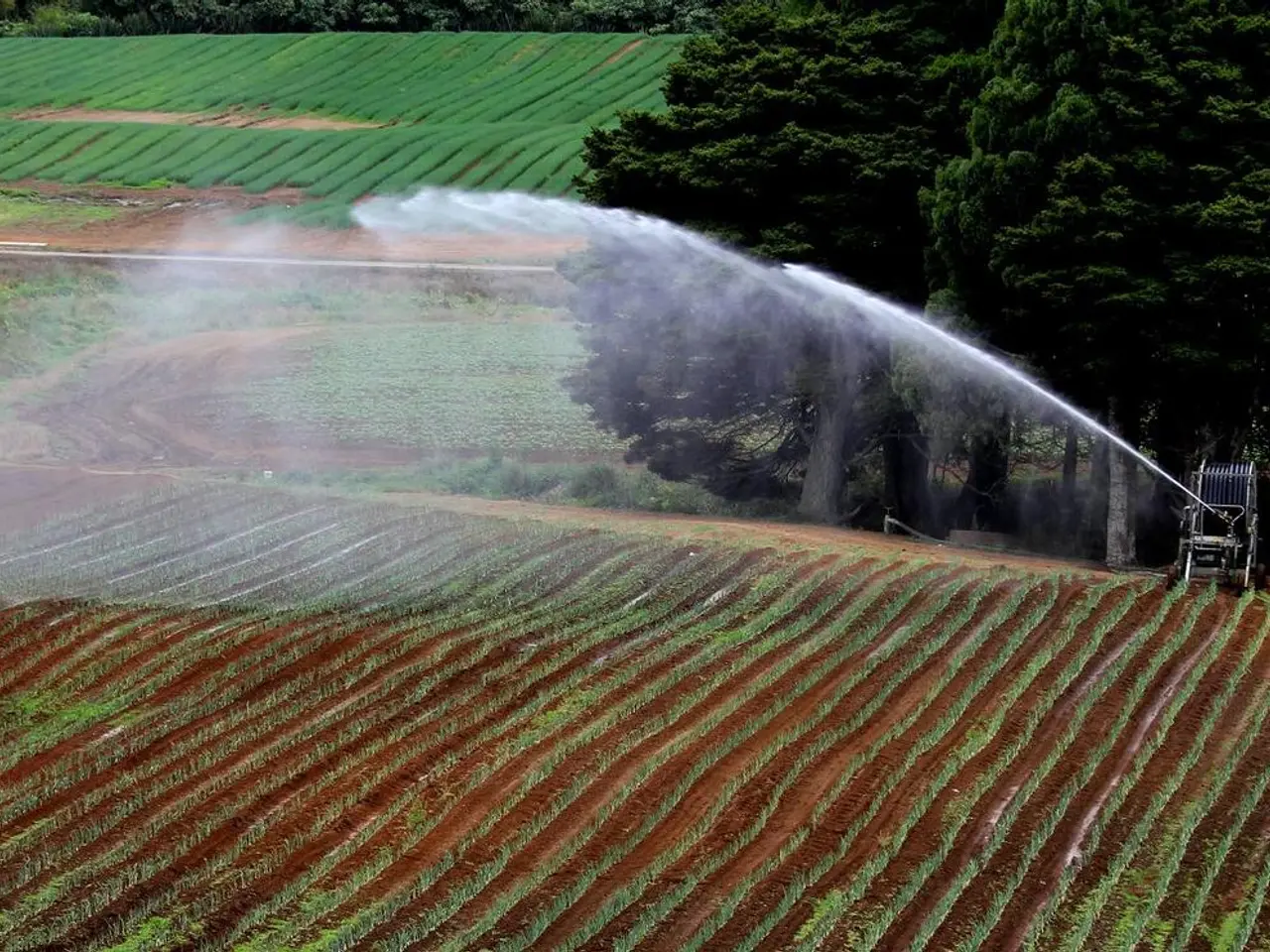Irrigation System Management: Strategies for Minimizing Disruptions
A well-maintained irrigation system is essential for ensuring even water distribution, reducing waste, and extending the lifespan of the system. To achieve this, a consistent maintenance program is crucial.
Regular inspections and cleaning are key practices in maintaining an irrigation system. Cleaning sprinkler heads, filters, and drip emitters regularly prevents clogs caused by dirt, sediment, and mineral buildup, ensuring consistent water flow and pressure.
Installing filters and pressure regulators also plays a significant role in protecting components and delivering water evenly within the ideal pressure range. Inspecting and maintaining valves, electrical connections, and wiring are necessary to prevent leaks, malfunctioning solenoids, or system control failures.
Scheduling routine maintenance audits and leak detection helps find and fix issues early, preventing costly emergency repairs and water waste. Adjusting watering schedules seasonally and watering times to early mornings or late evenings reduces evaporation loss and aligns with plant needs, improving water use efficiency.
Using smart irrigation controllers with weather and soil moisture sensors, where possible, automates adjustments and reduces unnecessary watering, extending system lifespan and conserving water. Flushing drip irrigation lines regularly is particularly important for systems in hard water or dusty environments, ensuring consistent emitter performance.
Applying waterproof thread seal tape on threaded pipe connections prevents leaks. Conducting regular system tests by activating each zone at least once a month and closely observing the system's behavior helps identify any issues promptly.
In winter or rural areas, pipes and connections can be damaged by frost or animals. Prevention is key in maintaining an efficient irrigation system. Inspect the control unit to ensure it is correctly programmed and follows proven programming practices. A full inspection at the start of the season is advisable in such cases.
Regular cleaning of filters and nozzles is necessary to prevent blockages caused by lime, sand, or dirt. Pressure control and leak detection are important steps in maintaining an irrigation system, as unusual pressure can indicate leaks, blockages, or faulty valves.
Install rain sensors to optimise water consumption and avoid unnecessary irrigation during rain. An efficiently maintained irrigation system prevents disruptions caused by leaks, blockages, or faulty solenoid valves. Look for unusually wet spots or puddles as potential signs of leaks or blockages in the irrigation system. Dry areas in the garden could also be signs of a problem.
In conclusion, an effective maintenance program involves establishing and following a consistent schedule, training staff to identify problems promptly, and combining preventive care with timely repairs to ensure uninterrupted operation, extend system lifespan, and improve efficiency. The maintenance of irrigation systems is often overlooked but crucial for their efficiency.
Incorporating home-improvement techniques, such as installing rain sensors, smart irrigation controllers, and applying waterproof thread seal tape, optimizes the efficiency and lifespan of the irrigation system. A well-designed home-and-garden lifestyle, incorporating an irrigation system, requires regular maintenance, which includes cleaning sprinkler heads, filters, and drip emitters, to ensure proper water distribution and reduce waste.




